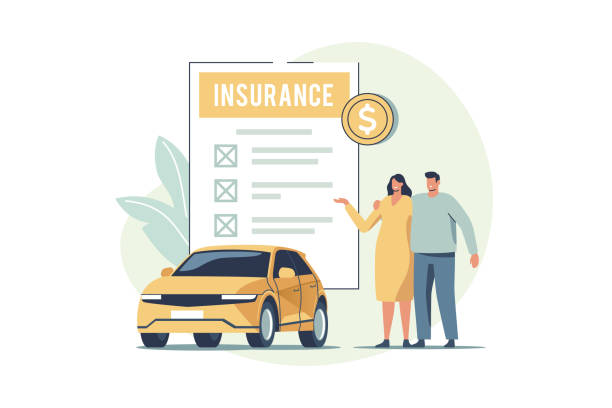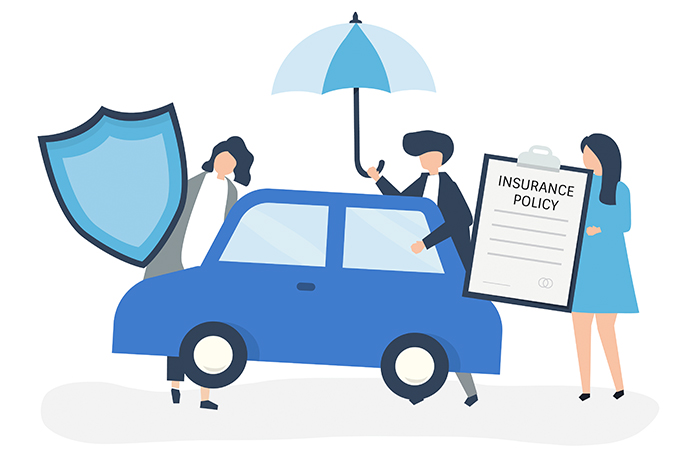Car Insurance Flow in the UAE: What Every Driver Needs to Know

Strong 8k brings an ultra-HD IPTV experience to your living room and your pocket.
Car insurance is an essential part of every driver’s responsibility in the UAE, providing financial protection in case of accidents, theft, or damage. The car insurance flow in the UAE follows specific regulations and processes that ensure drivers remain compliant with the law while securing themselves against unforeseen events. Whether you're a new driver or a seasoned one, understanding how car insurance works in the UAE is crucial for making informed decisions about your car insurance premiums, coverage options, and how to deal with claims.
✍️ If you’re a commercial vehicle owner, a regular car insurance plan won’t be enough. Our guide to motor insurance for commercial vehicles highlights the differences, additional protections required, and how to reduce costs while staying compliant with government regulations.
In this article, we will explore the car insurance flow in detail, covering the types of insurance available, the calculation of premiums, the buying process, and how to file a claim. We’ll also delve into the key factors to consider when selecting a car insurance policy to ensure you get the best insurance coverage possible.
Understanding the Basics of Car Insurance in the UAE
In the UAE, car insurance is not just a good idea; it’s a legal requirement for all vehicle owners. According to UAE insurance regulations, every driver must have at least third-party insurance before taking their car on the road. This basic coverage ensures that you are protected from financial liability in case of accidents involving third parties, including damage to property or injury.
While third-party insurance is mandatory, many drivers opt for more comprehensive coverage to safeguard themselves from a wider range of risks. The UAE insurance market is diverse, offering a variety of insurance coverage options for different needs, from basic third-party to comprehensive car insurance. Trusted insurance providers across the UAE offer policies that can be customized to suit individual needs, including additional benefits like roadside assistance, theft protection, and natural disaster coverage.
It’s important to understand the legal framework behind car insurance in the UAE, as non-compliance can lead to fines, vehicle impoundment, and other legal consequences. So, having an understanding of the car insurance flow in the UAE is vital for all drivers.
Types of Car Insurance Available for Drivers in the UAE
There are several policy types available to UAE drivers, each providing varying levels of protection. The two main types of car insurance are third-party insurance and comprehensive car insurance.
1. Third-Party Insurance:
This is the minimum requirement for all vehicles in the UAE, covering damage or injury to other people, vehicles, or property caused by your vehicle. While it’s the cheapest option, it provides no coverage for damages to your own vehicle. If you're looking for a budget-friendly option with basic protection, third-party insurance is suitable. However, the car insurance premiums for this type are generally lower than more comprehensive policies.
2. Comprehensive Car Insurance:
For more extensive protection, many drivers opt for comprehensive car insurance. This policy not only covers third-party damages but also protects your own vehicle from theft, vandalism, fire, and natural disasters. Though the car insurance premiums for this option are higher, it offers peace of mind and more complete insurance coverage.
3. Motor Insurance:
Motor insurance policies in the UAE are often tailored for specific types of vehicles. These policies may include benefits such as roadside assistance, coverage for replacement vehicles, and more, depending on the insurer.
4. Online Car Insurance:
In the digital age, many trusted insurance providers offer online car insurance, allowing drivers to compare insurance quotes and purchase policies from the comfort of their home. This streamlined process helps reduce the car insurance process time and often includes discounts for online purchases.
5. Insurance for Expats:
For expatriates in the UAE, it’s essential to find a provider that offers tailored insurance coverage options. Some insurance providers specialize in policies that cater specifically to the needs of expatriates, offering features like coverage in both the UAE and their home country.
How Car Insurance Premiums Are Calculated in the UAE
The car insurance premiums you pay in the UAE are influenced by several factors, which vary from one driver to another. Understanding these factors will help you manage and possibly reduce your insurance costs. Key elements include:
1. Vehicle Type and Value:
The make, model, and age of your car significantly affect your car insurance premiums. Expensive or luxury cars typically incur higher premiums due to their repair costs and risk of theft.
2. Driver’s Age and Experience:
Young and inexperienced drivers usually face higher car insurance premiums, as they are statistically more likely to be involved in accidents. Conversely, more experienced drivers with a clean driving history may enjoy discounts.
3. No-Claim Bonus:
A no-claim bonus (NCB) is a reward for not making any claims during a policy period. This can significantly reduce car insurance premiums, especially if you have a clean driving record.
4. Coverage Level:
The higher the level of coverage you choose, the higher the car insurance premiums will be. For example, opting for comprehensive car insurance rather than third-party insurance will increase your premiums.
5. Claims History:
If you have a history of making frequent car insurance claims, insurers may consider you a higher risk, which could result in higher premiums.
6. Insurance Providers and Discounts:
Different trusted insurance providers offer varying insurance quotes. Some insurers may offer discounts for bundling policies or having anti-theft devices installed in your car.
The Process of Buying Car Insurance in the UAE: A Step-by-Step Guide
Purchasing car insurance in the UAE is a straightforward process. Here’s a step-by-step guide to navigating the car insurance flow in the country:
Step 1: Research Insurance Providers:
Start by researching trusted insurance providers. Look for companies with a good reputation for customer service and reliable claims handling. You can also ask for recommendations from friends or family.
Step 2: Choose the Right Policy Type:
Based on your needs and budget, decide whether you want third-party insurance or comprehensive car insurance. If you’re looking for more extensive protection, comprehensive car insurance may be the better option.
Step 3: Compare Insurance Quotes:
Once you’ve identified potential insurers, request insurance quotes from multiple companies. Comparing quotes will give you a sense of the insurance costs and help you find the best deal.
Step 4: Fill Out the Application:
After selecting a provider, fill out the application form. You will need to provide details about your vehicle, driving history, and desired coverage.
Step 5: Review the Insurance Policy:
Before signing, thoroughly review the insurance policy to ensure that it covers all your needs. Pay close attention to insurance coverage options, exclusions, and the terms and conditions.
Step 6: Make Payment:
Once you’ve agreed to the terms, make the payment. Most insurers offer flexible payment options, including monthly or annual plans.
Step 7: Receive Your Insurance Certificate:
After payment, you will receive your insurance policy certificate, which must be kept in your vehicle at all times as proof of insurance.
What to Look for in a Car Insurance Policy in the UAE
When shopping for car insurance, it’s essential to consider several factors to ensure you get the best possible deal. Here’s what to look for in a policy:
Comprehensive Coverage: Make sure the policy covers both third-party damage and damages to your own vehicle.
Insurance Terms: Understand the terms and conditions of the insurance policy, including deductibles, coverage limits, and exclusions.
Claims Process: Ensure the claims process is straightforward and transparent. Choose an insurer with a reputation for quick and fair claims settlement.
Customer Support: Look for trusted insurance providers that offer excellent customer support, particularly for emergencies and claims.
Discounts: Inquire about available insurance discounts, such as discounts for safe driving or installing anti-theft devices.
How to File a Claim and Handle Car Insurance in the UAE
Filing a car insurance claim in the UAE is a straightforward process, but it requires attention to detail. Follow these steps to ensure your claims process goes smoothly:
Report the Incident: Notify your insurer as soon as an incident occurs. Most insurance providers have a 24/7 hotline or online platform for reporting claims.
Provide Documentation: Submit any required documents, such as a police report (for accidents), photos of the damage, and your policy details.
Assessment and Approval: Once your claim is submitted, the insurer will assess the damage and approve the claim. This may involve sending an adjuster to inspect your vehicle.
Settlement: After approval, your insurer will settle the claim by either paying for repairs or reimbursing you for the damages, depending on the type of coverage you have.
In conclusion, understanding the car insurance flow in the UAE is essential for every driver. Whether you're choosing between third-party insurance or comprehensive car insurance, ensuring you have the right coverage can save you from financial stress in the event of an accident. By researching trusted insurance providers like Shory Car Insurance and comparing insurance quotes, you can find the best policy to suit your needs and budget. Make sure to understand your insurance coverage options, premiums, and the claims process to ensure you're adequately protected on the roads.
Note: IndiBlogHub features both user-submitted and editorial content. We do not verify third-party contributions. Read our Disclaimer and Privacy Policyfor details.







